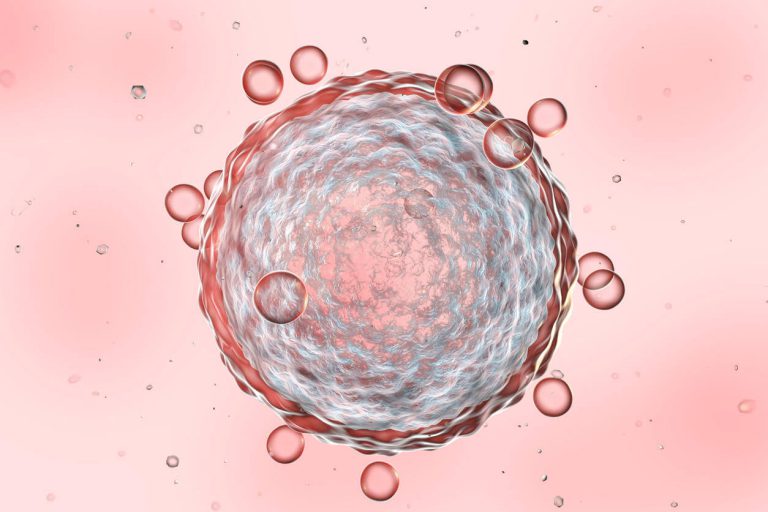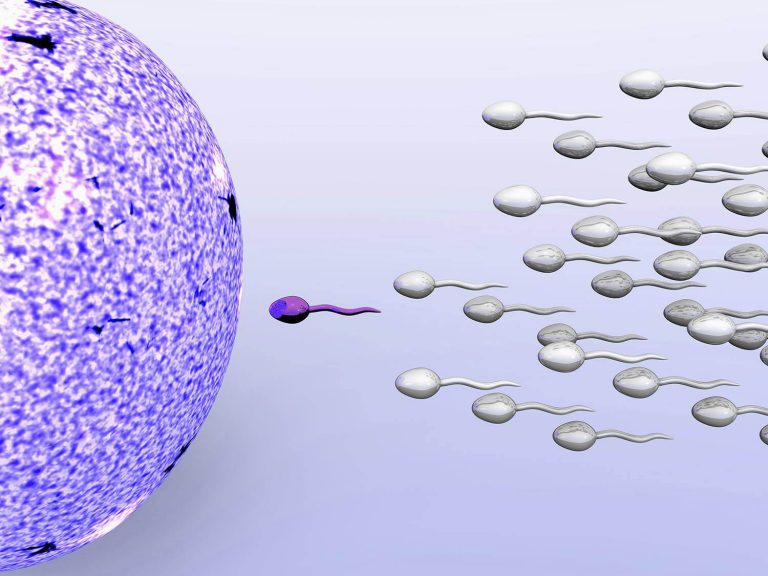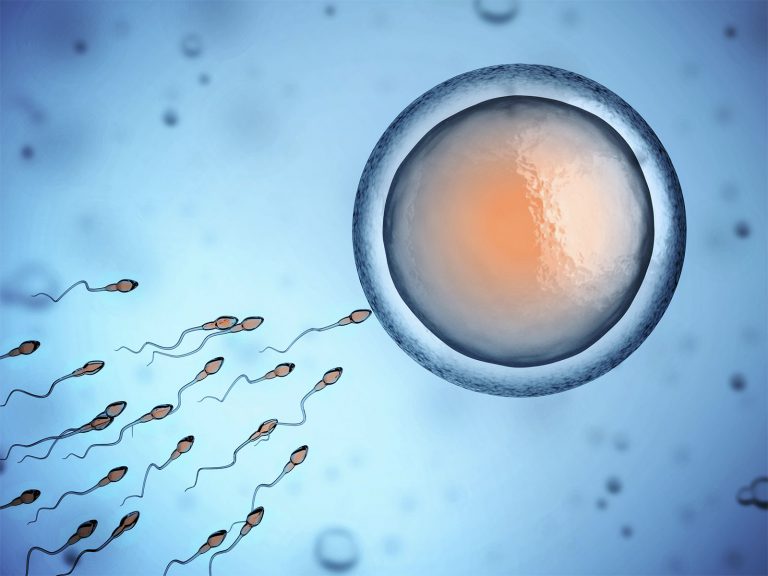If you or your partner has been undergoing IVF treatment for infertility, you may have heard about the risk for OHSS. OHSS, or Ovarian Hyperstimulation Syndrome, is a condition where a patient’s ovaries become swollen and fluid builds up around her abdomen, generally as a result of over-stimulation of the ovaries by the medications used for IVF.
During IVF treatment, hormone-based medications are given to a woman to stimulate her ovaries to produce eggs for retrieval. OHSS results when the body responds too strongly to these medications. It is most common in women who receive medications by injection, and rarely occurs in women who take medications by mouth, such as Clomid. OHSS symptoms will usually go away on their own, however, severe OHSS is potentially dangerous and requires immediate hospitalization.
How Common is OHSS?
OHSS symptoms can occur in mild, moderate, or severe forms. Keep in mind that mild OHSS symptoms are very common and considered almost a “normal” response following ovarian stimulation. Although the risk for developing severe OHSS is relatively low, listen to your body and carefully monitor your symptoms to determine if you are developing severe OHSS which requires immediate hospitalization.
–Mild: an estimated 20-35% of all cycles.
–Moderate: 3 – 6% of all cycles.
–Severe: 0.1 – 3% of all cycles.
Risk Factors of OHSS
These are some factors that increase the risk for developing OHSS:
– having had OHSS before
– having polycystic ovary syndrome (PCOS)
– having a low body weight
– having a high follicle count
– having a high level of estrogen before the shots are administered
– having a tendency to get migraines
– being younger than 35
OHSS Symptoms
When the ovaries are overstimulated, they swell in size, and the blood vessels that service the ovaries can begin to leak fluid into the abdominal cavity. This results in a variety of symptoms. OHSS symptoms depend on the severity of the over stimulation.
Mild or moderate OHSS, for instance, might cause bloating, nausea, mild to moderate abdominal pain or tenderness, vomiting, and/or diarrhea.
Severe OHSS, on the other hand, can cause rapid weight gain (to the tune of 5 pounds in a day, or 10 pounds in 3 days), severe abdominal pain and tenderness, severe nausea, vomiting, decreased urination, dark urine, shortness of breath, labored breathing, calf pain, dizziness, and a tight-feeling abdomen.
The mild form of OHSS is the most common, and in general, symptoms go away after a week, unless you get pregnant – in that case, symptoms may get worse and last up to several weeks.
OHSS Prevention Medication
Dostinex (Cabergoline) – This is an example of a prescription drug used to reduce the risk for developing OHSS. Studies conducted in four randomized clinical trials have found that women who took cabergoline had a significant reduction in the incidence of OHSS with an absolute risk reduction of 12%. Unfortunately, cabergoline did not reduce the incidence for severe OHSS. Despite these shortcomings, there was no evidence that cabergoline might affect pregnancy rate or miscarriage rates, which makes this drug a promising form of prophylactic treatment to reduce the incidence of OHSS without compromising pregnancy outcomes.
Doxycycline – Another example of a prescription drug used to reduce the risk for developing OHSS is doxycycline. Although Doxycycline is an antibiotic it has been incorporated into several IVF programs. It may sound odd to use an antibiotic for preventing OHSS, but at least one study in mice shows that doxycycline may prevent the leaking of fluids from the vascular system into the abdomen (“leaky” vessels are believed to be the main cause of OHSS). Equally important to note is that the researchers of this study reported that using doxycycline did not inhibit ovarian stimulation. These findings are promising and will likely lead into larger clinical trials to understand how the promising potential of doxycycline as a prophylactic treatment approach before beginning gonadotropin stimulation.
Aspirin – At least one study has found that low-dose aspirin was associated with a reduction in the incidence of severe OHSS. When comparing OHSS high-risk patients not receiving aspirin treatment and OHSS high-risk patients receiving 100mg of aspirin treatment, there was a reduction in severe OHSS rates from 8.4% to 0.25% respectively. Additionally, aspirin is considered an anti-platelet drug, which can help decrease the risk of developing a blood clot if you have OHSS, so your doctor may already recommend taking a baby aspirin.
OHSS Treatment and Symptom Management
Although a formalized treatment for OHSS is not established, there are many ways to minimize and manage the severity of symptoms.
Fluids With Electrolytes
Maintaining adequate fluid intake and staying hydrated is one of the most important components for preventing the worsening of OHSS. The American Society For Reproductive Medicine (ASRM), recommends no less than 1 Liter of fluids per day (average 3 Liters), and prefers drinks with electrolytes compared to plain water (V8 juice, Gatorade, Powerade, Pedialyte, even chicken broth). Depending on the severity of the OHSS, water and electrolytes are leaking from the vessels into the abdominal space which can cause dehydration and electrolyte imbalance. The laboratory findings in women with serious illness resulting from OHSS show decreased hemoconcentration, which is a sign of dehydration, and also severe electrolyte imbalance (low sodium and potassium). Some patients have recommended soy sauce packets as an easy way to increase sodium levels. Fluid intake is often overlooked but is one of the most important factors to maintain during OHSS.
Small Meals High in Protein
Although you may feel nauseous, it is important to eat small meals with high protein content throughout the day. The reason physicians recommend a high protein diet is a phenomenon we learned in high school chemistry–osmosis! When battling OHSS, the goal is to increase the amount of solutes in the blood which functions to keep water in the blood vessels rather then leak into the abdominal cavity and increase the swelling and discomfort. When we digest protein it is broken down into smaller pieces called amino acids, which act as solutes in our blood. Patients that are hospitalzed for severe OHSS will usually get an IV of albumin, the protein in our blood that acts as a solute to help regulate the pressure in our blood vessels. Some patients and physicians recommend protein shakes as a good source of high protein.
Anti-Nausea Medication
Although it is very important to eat small frequent meals with high levels of protein, if you are experiencing nausea you likely will not have a big appetite. Moreover, if you are bloated and have a swollen abdomen chances are you will feel full and have low appetite. If you get nauseous easily, it might be a good idea to let your doctor know and ask for an anti-nausea medication prescription like Zofran or Zuplenz (generic: Ondansetron).
Pain Management
Although pain can can act as a natural way for our bodies to communicate injury, having uncontrollable pain can greatly effect your quality of life. Uncontrolled pain can decrease appetite, disrupt sleep, cause anxiety and stress. There is a common misconception that pain happens, and we just need to put up with it. Although doctors have varying opinions on opiate pain medications due to the risk of narcotic addiction, you have a right as a patient to have access to pain management. Remember to voice your concerns about pain management with your doctor. Keep in mind that opiate pain medications will likely cause constipation.
Stool Softeners for Constipation
The opiate anasthetics as well as progesterone usually cause constipation which can be relieved by incorporated stool softeners like colace, senokot, prune juice, and even magnesium supplements. Patients often report that the fluid buildup in the abdomen causes pain and discomfort when having bowel movements. The constipation may be worse if you are dehydrated or on opiate based pain medications, which is another reason fluid intake with high electrolyte content is so imporant to manage OHSS.
Light Physical Activity to Decrease Blood Clots and Swelling
Although strenuous physical activity and sexual intercourse should be avoided as risk of ovarian torsion increases when the ovaries are enlarged, light physical activity can help decrease the chances of blood clots and has an added benefit of decreasing swelling. It is important to note that strict bed rest is not recommended either due to increased risk of blood clots. As soon as you are able to, it is important to try and walk around and gradually increase physical activity to a comfortable level.
Hospitalization Due to Severe OHSS
In cases of severe OHSS, sometimes hospitalization is required. This is very rare, and usually occurs because of the increased risk of blood clots or other life-threatening complications. The doctors may give you IV fluids, anticoagulant medication (to prevent clotting), cabergoline (which can reduce the fluid build-up), or drain the excess fluid in the abdomen using a technique called paracentesis.
Since pregnancy can make OHSS worse, being at high risk for OHSS can complicate the IVF process. When OHSS is suspected or develops, it is sometimes best to interrupt the current IVF cycle by immediately freezing all of the woman’s eggs or embryos and letting the body rest and recuperate for a cycle or two. Then the eggs/embryos can be transferred later, when the body is in better shape for the pregnancy.







